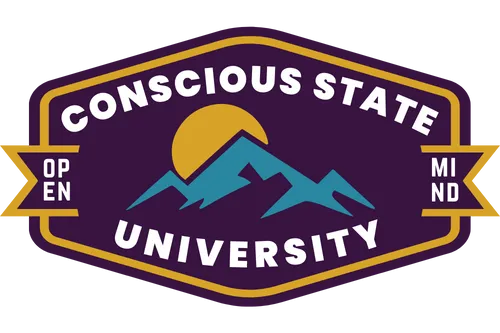Curriculum
Cultivating a Conscious Culture
At Conscious State University, we provide immersive workshops and online training using science-backed methodologies that empower your leaders and teams to calm their minds and create new thinking and emotional patterns. Our customized workshops and online training equip your people to:
Rewire Neural Pathways
Overcome Past Mental Programming
Improve Decision-Making
Develop Emotional Resilience
Collaborate Effectively
Reduce Workplace Stress
Increase Engagement
Cultivate Innovation

"44% of Fortune 100 companies provide mindfulness training to employees."
Source: Altered Traits by Daniel Goleman and Richard J. Davidson
Our system is designed to equip leaders with the tools they need to infuse a 'conscious state’ of mind within their organizations, one team player at a time.
Activating a Conscious State of Mind
In a stressed or depleted state, people revert to their mental programming — old patterns, ingrained biases and past conditioning to try to cope.
Conscious State University aims to break this cycle by teaching neuroscience, mindfulness, meditation, breathwork and NLP techniques to help leaders and their teams "debug" their mental software. Our techniques facilitate transformational growth by training your people to calm their minds, gain clarity, and make conscious, forward-thinking decisions.
"Incorporating mindfulness in the workplace reduces employee stress by 36%."
Source: Centers for Disease Control and Prevention, 2016.
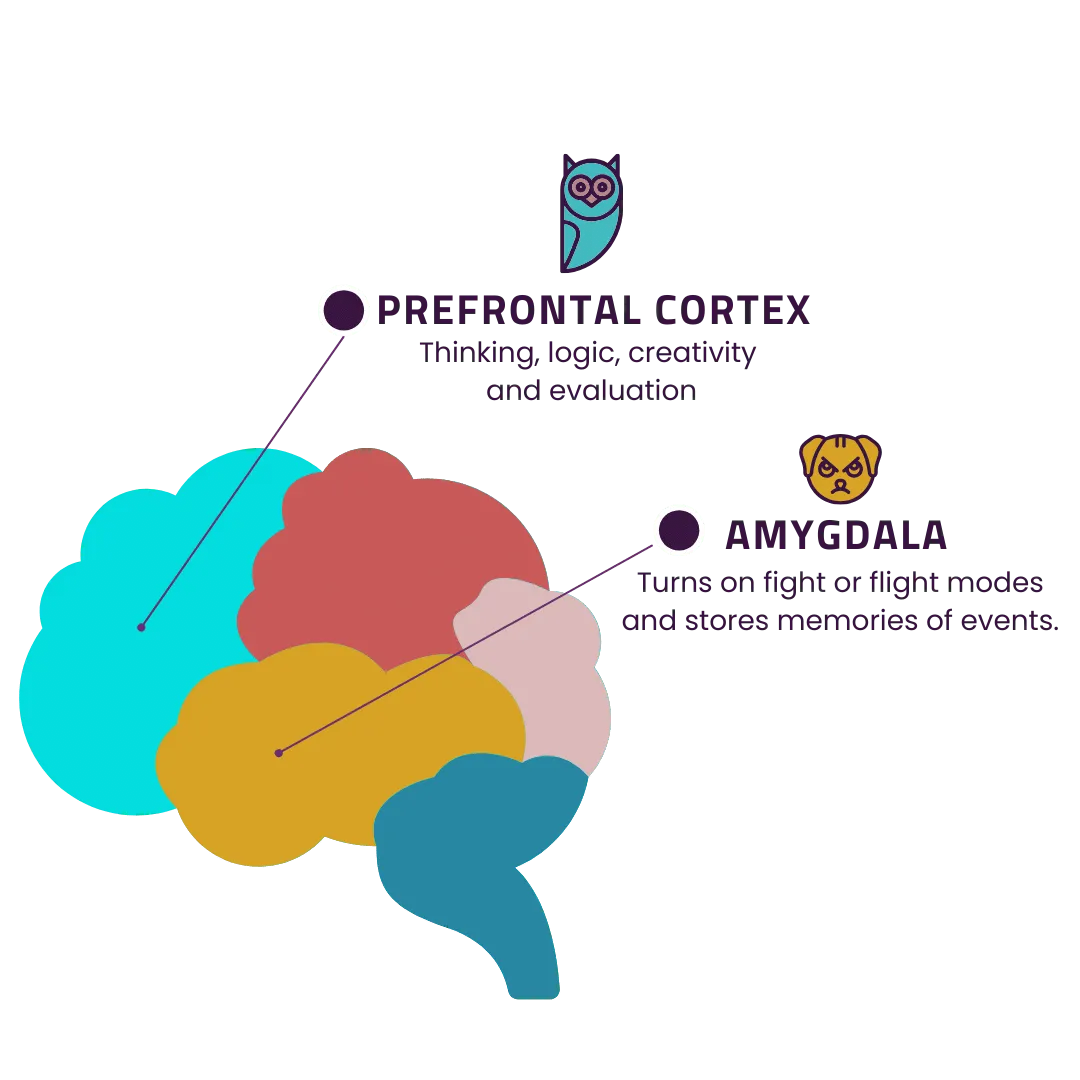
Debugging Our Mental Software
Ever been in a situation when your anger went from 0 to 100 in seconds? That's your amygdala springing into action, treating a mild threat as a catastrophic event. Your amygdala is like an overprotective “guard dog,” that suddenly wakes up and overreacts to a potential threat, as if it’s a life-or-death situation.
In the workplace, life-or-death situations are a rare event, so it’s our job to calm down this “guard dog” with proven techniques that allow your “wise owl,” or the brain’s prefrontal cortex— responsible for executive systems like decision-making—to take the reins and consciously choose a response. Learn more in our Free Guide, “Breaking Bad Decisions.”
"Neuroscience studies suggest mindfulness meditation techniques can help reduce reactivity and fear responses by lowering activity in the amygdala."
Source: Centers for Disease Control and Prevention, 2016.
Our "Mental Debugging" Techniques
It’s no surprise that an increasing number of corporations are offering mindfulness and meditation training to their employees. In fact, a striking 44% of Fortune 100 companies offer mindfulness and meditation training programs to their employees (according to Altered Traits by Daniel Goleman and Richard J. Davidson).
At Conscious State University, we harness potent techniques like NLP, mindfulness, breathwork and meditation to nurture a conscious state of awareness.
Our multifaceted approach serves to inspire and empower both leaders and teams with the following “mental debugging” techniques:

Mindfulness
This technique instructs the mind to remain grounded in the here and now, rather than getting pulled unconsciously into past memories, triggers or trauma. Extensive research showcases how mindfulness meditation can help alleviate reactivity and fear reactions by reducing the activity within the amygdala. Regularly engaging in mindfulness meditation can trigger the rewiring of neural connections and, in turn, promote a conscious state of mind.
Scientific research has established that mindfulness and meditation exercises can significantly reduce symptoms of anxiety, depression, and stress. A 2014 meta-analysis published in JAMA Internal Medicine examined 47 randomized trials and deduced that mindfulness meditation contributes moderately to reducing anxiety, depression, and pain.
Relevant to the workplace, mindfulness meditation has been associated with enhancing empathy, compassion, and emotional intelligence (Luberto et al., 2018), fostering motivation and goal achievement through visualization techniques (Lindsay et al., 2018), and even improving relationships and engagement across the board (Hyland et al., 2015).
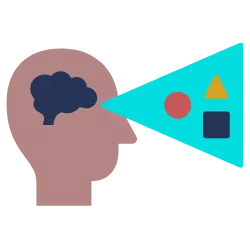
Visualizations
Exercises involving imagery and metaphors facilitate in reframing traumatic narratives from a position of strength and control by stimulating different neural networks from those linked to past emotional scars. Visualization done in a relaxed, receptive mental state allows the subconscious mind to resolve itself from a distanced perspective. This helps build new, constructive associations.
Another meta-analysis published in the Journal of Consulting and Clinical Psychology in 2016, which analyzed 141 studies, found that visualization-based therapies, like guided imagery, moderately diminish negative emotions, including anxiety, depression, and stress.
Findings suggest that visualization could even enhance cognitive abilities like memory and concentration. A study carried out in 2015 by Frontiers in Psychology indicates that a visualization training regime amplified working memory capacity.

Storytelling
Stories bring meditation and visualization to life. By integrating narrative elements with structure and meaning into guided practices, participants can immerse themselves more easily as the mind can more effortlessly follow prompts for relaxation. Research shows that when we hear a story, our brains release neurochemicals like oxytocin that deepen empathy and connection. Neural networks linked to imagination, perspective-shifting and understanding also activate, allowing the mind to envision desired goals with vivid clarity. The storyline helps people stay focused in the present moment without distraction. In this way, thoughtfully crafted stories enhance meditations and visualizations by harnessing our brains' natural gravitation towards imaginative worlds filled with meaning and human connection.
A 2017 randomized trial found that a CBT intervention using metaphorical storytelling was effective in reducing anxiety and depressive symptoms in women with breast cancer (Taleghani et al., 2017).
Cognitive restructuring using storytelling metaphors has been found helpful for shifting perspectives and promoting post-traumatic growth (Shakespeare-Finch & Lurie-Beck, 2014).
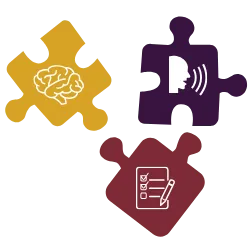
NLP (Neuro-linguistic Programming)
NLP is a powerful tool designed to help individuals navigate through hurdles and realize their aspirations by examining and adjusting their attitudes, thought processes, and verbal and non-verbal communications. The main premise of NLP is that there's a deep-seated correlation between our neural operations, linguistic patterns, and our learned behaviors. NLP's unique strategies encompass the use of specific language patterns, metaphors, mental state accessibility and visualization to help individuals achieve their desired outcomes.
Research by Stipancic et al. (2010) suggested NLP may enhance general well-being and life satisfaction in nonclinical samples.
A 2016 study in the International Journal of Business Communication found that training managers in using NLP skills like matching and mirroring improved team cohesion, communication, and conflict resolution among employees.
NLP has also been studied for reducing public speaking anxiety, with dos Santos et al. (2017) reporting a case study where NLP imagery and self-talk techniques decreased this anxiety. Singh and Abraham's 2008 work in Development and Learning in Organizations looked at NLP for developing presentation skills and found it increased self-efficacy and skills for delivery, structure, and handling anxiety.
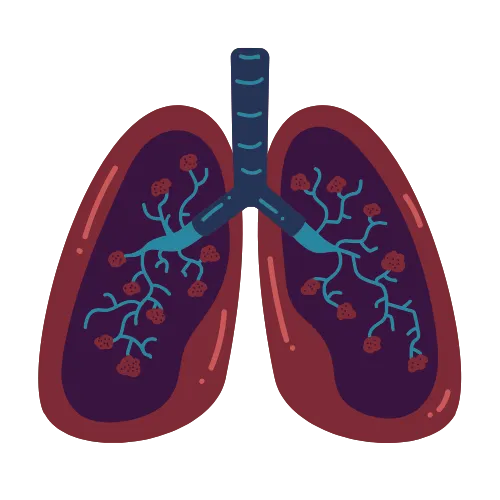
Breathwork
Purposeful breathing exercises help to pacify the nervous system, transitioning the brain from the reactionary "fight or flight" mode and lowering activity in the amygdala. This ushers in the formation of new neural pathways.
Numerous studies have shown that regular practice of deep-breathing exercises reduces stress, anxiety, and fatigue levels.
Moreover, slow and deep breathing exercises stimulate the vagus nerve, rendering calmness to both the body and mind.
Medical Hypotheses proposed in 2009 that it can be instrumental in treating conditions like depression and PTSD.
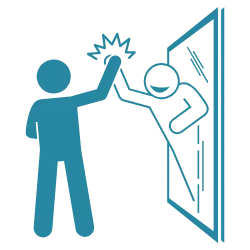
Affirmations
Affirming desirable mindsets and behavioral patterns, instead of replaying limiting narratives from the past, aids in reshaping previous conditioning and patterns. Combining affirmations with meditation reinforces neural networks associated with positive states, such as self-esteem, confidence and resilience, thereby overcoming trauma-induced beliefs.
According to research, affirmations focused on personal values could elevate self-esteem and facilitate goal attainment. A study published in 2009 in the Journal of Social and Clinical Psychology found that values-affirmations noticeably improved academic performance among students at risk, with the benefits of affirmations appearing to be more pronounced among those grappling with low self-esteem.
A 2021 study in Applied Psychology found engaging in self-affirmation exercises increased self-esteem and other indicators of wellbeing in a sample of university students.
Easy and Accessible
Our practices are designed to make achieving a “Conscious State” easy and accessible. These short video and audio sessions are organized by theme, duration, and type so you can quickly find what you need.
Select from core trainings, visualization, meditation, breathwork and more based on your mood and goals.
Filter by duration, whether you have 5, 10, 30 or 60 minutes available.
Browse practices for specific benefits you seek like managing stress, improving focus, or boosting productivity.
Create a practice on your schedule accessible 24/7 through the mobile app.
New themes and practices are added on an ongoing basis.
Members can even make requests for new practices based upon real-time situations.
Example Practices
The following sample practices give you a taste of the themes and variety of content within our library.

Living a Life of Purpose and Impact
Learning the difference between purpose, motivations, values and goals. Purpose gives life meaning beyond temporary wants or goals. Connecting to your unique purpose provides an internal compass to guide your choices, even through life’s uncertainties. Understanding how to align daily actions with long-term purpose creates a life of fulfillment and positive impact.
Visualization: Envisioning Your Higher Genius (5 Minutes)
Affirmation: I Trust My Inner Wisdom (10 Minutes)
Mindfulness: Reflecting on Your Values (15 Minutes)
Breathwork: Energizing Breathwork (20 Minutes)
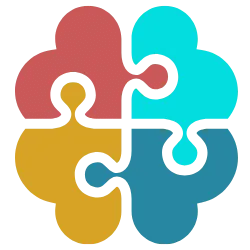
Beliefs Shape Your Actions, Not Your Identity
Understanding that your beliefs impact your actions, but don't define your value or identity. Our beliefs influence how we act and the choices we make, but they do not determine who we are at our core. Beliefs come and go, but your identity remains fixed throughout life's changes.
Visualization: Letting Go of Limiting Beliefs (5 Minutes)
Affirmation: I Am Not Defined By My Thoughts (10 Minutes)
Mindfulness: Observing Thoughts Non-Judgmentally (15 Minutes)
Breathwork: Breathing Away Self-Doubt (20 Minutes)

Being Your Own Biggest Fan
Finding internal completeness by giving yourself what you need, rather than seeking it externally. True fulfillment starts from within. Rather than looking for others to meet your needs, you can learn to be your own emotional support system. Meeting your own needs takes the pressure off relationships. You have everything required to make yourself happy if you cultivate self-love.
Visualization: Picture Yourself Surrounded By Love (5 Minutes)
Affirmation: I Deeply Love and Accept Myself (10 Minutes)
Mindfulness: Self-Compassion Meditation (15 Minutes)
Breathwork: Heart-Centering Breathwork (20 Minutes)


Tuning Out Distractions During Down-time
Minimizing disruptions to quality relaxation. True relaxation requires disconnecting from digital disruptions and distractions that pull your attention. Set boundaries with yourself and others to protect your downtime.
Visualization: Picture Yourself Completely Relaxed (5 Minutes)
Affirmation: I Am Present in Each Moment (10 Minutes)
Mindfulness: Mindful Walking (15 Minutes)
Breathwork: Alternate Nostril Breathing (20 Minutes)

Transitioning Smoothly from Sunday to Monday
Reframing Sundays as a chance to recharge and planning ahead to ease Monday morning anxiety. Rather than dreading Mondays, view Sundays as an opportunity to renew yourself before the workweek. Spend time doing activities you find rejuvenating.
Visualization: Imagining a Smooth Monday Morning (5 Minutes)
Affirmation: I Let Go of Work Stress on Sundays (10 Minutes)
Mindfulness: Sunday Wind-Down Meditation (15 Minutes)
Breathwork: Sunday Evening Calming Breathwork (20 Minutes)
AND MUCH MORE...
Request a Proposal
To gain further insight into Christie Turley’s in-person workshops, as well as Conscious State University’s online learning platform, request a proposal.
"Employees who participate in corporate wellness programs are 2.5 times more likely to be working there in 3 years."
Source: The International Foundation of Employee Benefit Plans (IFEBP)

About Conscious State University
Conscious State University was founded by Christie Turley, an executive coach with more than 20 years experience empowering leaders to maximize their peak performance potential, assisting Fortune 500 executives, advising on inclusion and belonging initiatives, and spearheading high-profile ventures. Christie is also trained in science-backed methodologies such as NLP, mindfulness, meditation, breathwork and other techniques to facilitate lasting transformations. Her holistic perspective helps each team player to reconnect with their purpose, so they can lead with consciousness and presence.

We help leaders and their teams to:
Improve decision-making and strategic thinking to navigate complex problems and make informed choices that align with their vision and goals.
Master a conscious mindset and breakthrough limiting beliefs, empowering team members to overcome obstacles, build resilience, and achieve lasting success.
Elevate leadership presence by fostering stronger relationships, managing conflicts, and inspiring their teams, while building a thriving company culture.
Cultivate work-life balance, while focusing on emotional intelligence, self-awareness, and mindset shifts that lead to increased fulfillment and success, both personally and professionally.
FAQS
How can your training help my team members overcome stress, anxiety, and burnout?
Through our customized training, employees learn to self-regulate emotions, let go of past triggers, and respond thoughtfully instead of reacting impulsively. This builds resilience to stress and prevents burnout.
How can your programs help my employees make better decisions and think more strategically?
Our programs teach science-backed techniques like mindfulness, meditation, and breathwork to help employees manage stress, expand awareness, and think more clearly. This leads to improved decision-making, strategic thinking, and problem-solving.
What are some examples of companies you've worked with to build conscious leadership and mindfulness?
We've worked with leading companies in finance, technology, healthcare, and other industries. While client names are confidential, we can provide references upon request.
How quickly can my team adopt and implement your tools and teachings into their daily work?
Our bite-sized audio practices make it easy to start experiencing benefits in the first week. Long-term adoption takes 2-3 months of regular short practices. We also recommend a kick-off keynote presentation to introduce the concepts and cultivate enthusiasm around the programs.
Can your programs be customized for different roles, such as executives vs. individual contributors?
Yes, our curriculum is tailored to each role's unique challenges, communication style, and decision-making influence. Executives receive coaching to cascade teachings.
What differentiates your approach from other corporate wellness or leadership coaching providers?
Our integrative use of mindfulness, meditation, NLP, breathwork, and neuroscience is unique. And our focus on decision-making differentiates us from wellness programs.
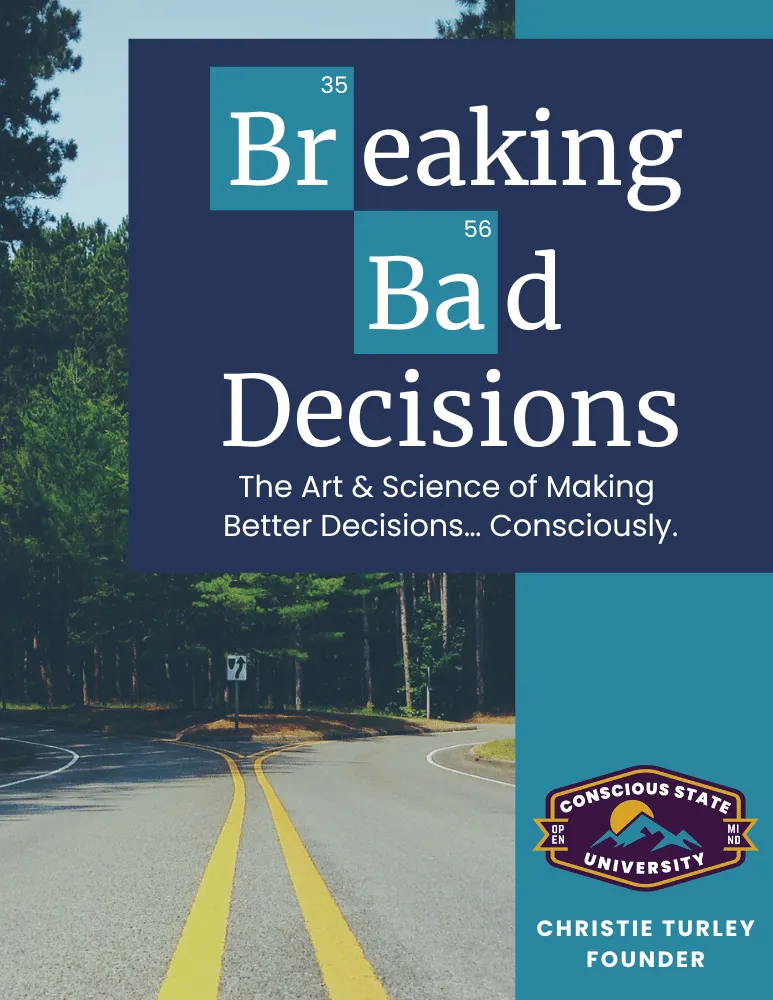
Breaking Bad Decisions
There’s nothing more vital to a leader's success than good decision-making. After all, decisions determine actions— and actions determine results. Learn more about the art & science of making better decisions by downloading the Free Guide, “Breaking Bad Decisions"...>>
Copyright Thrive Training, LLC 2020-2023, All Rights Reserved. 1812 W Sunset Blvd, Ste 1-114. Saint George, Utah 84770 USA
Copyright Thrive Training, LLC 2020-2023, All Rights Reserved. 1812 W Sunset Blvd, Ste 1-114. Saint George, Utah 84770 USA
